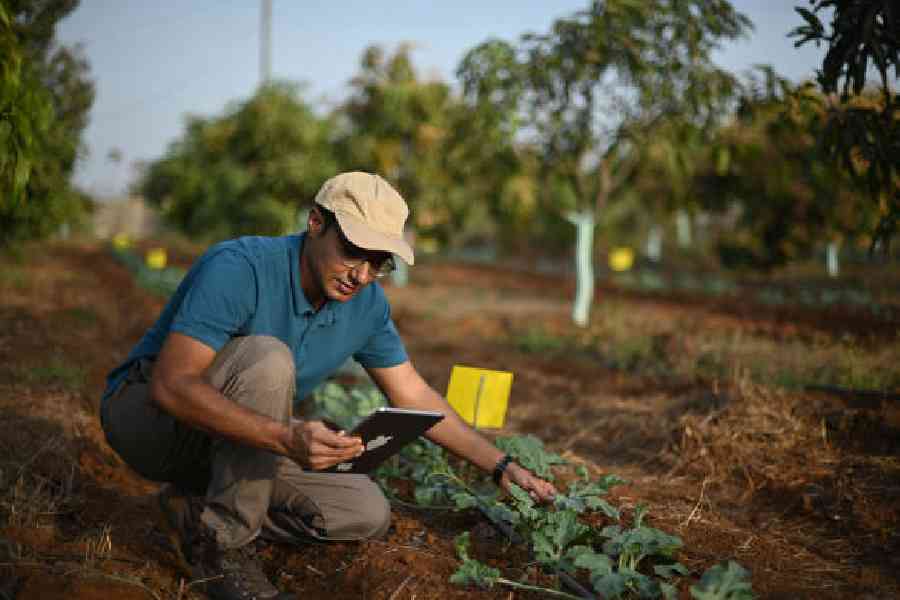Green jobs: Courses and career possibilities after studying agricultural science


At Visva-Bharati’s Palli Siksha Bhavana, a student can pursue courses in agricultural science. It is a subject that deals with the technology of improving productivity of crops. Students are trained to analyse soil conditions and weather conditions, which are crucial to crop production. But agricultural science is not only about producing crops. It includes the study of animal husbandry, dairy farming, pisciculture and also horticulture.
Moumita Chaudhuri spoke to Souvik Ghosh (see pic), head of Palli Siksha Bhavana, about the courses on offer and the career possibilities. Here are excerpts:
q What kind of courses are offered at Palli Siksha Bhavana, the agricultural science department of Visva-Bharati?
We offer both undergraduate and postgraduate courses. The bachelor’s course is a four-year programme. At the postgraduate level, one can specialise. We also have PhD programmes.
q How is the BSc course structured?
The course is divided into eight semesters. The first six semesters are mostly theory but students are required to visit the fields for practical classes. The last two semesters have mostly practical classes. Students sow seeds, grow crops and harvest them. They work hand in hand with the farmers.
q And at the postgraduation level?
There are eight subjects in which students can specialise — agronomy; soil science and agricultural chemistry; genetics and plant breeding; vegetable science; fruit science; agricultural entomology; plant pathology; and agricultural extension education. From the 2024-25 academic session, we will be introducing two new specialisations — agriculture economics and crop physiology. We also offer a postgraduate course in poultry science.
q Who can apply for a bachelor’s in agriculture?
Those who have studied science in Class XII.
q When Rabindranath Tagore introduced agriculture as a course in this institution, what was his vision?
Tagore wanted India to be economically independent. For that, he wanted to restructure the rural economy. He knew that to improve agricultural productivity, it was necessary to enhance technical skills. So he sent his son Rathindranath and his friend’s son Santosh Majumdar to the University of Illinois, US, in 1906, to study agriculture and animal husbandry, respectively. After returning, they joined the team. What happened thereafter is known as the Sriniketan experiment.
Tagore amalgamated agriculture, cattle breeding and rural handicrafts, and built a rural economy. Dairy farming was introduced in the Sriniketan project in 1923. Poultry farming and goatery came later. Agricultural science is not only about crop production. It includes goatery, dairy farming, animal husbandry and pisciculture. Tagore initially set up a dairy farm in Santiniketan in 1901. His idea was to train school children in cattle rearing and also provide them with fresh milk. This was his vision.
q What are the career options after graduation?
They can take up jobs immediately after completing BSc in agricultural science. They are industry-ready. In the final semester, we offer a rural awareness work experience programme, or RAWE, and the another programme in experiential learning. Let me explain. For instance, we have a mushroom production unit. The students are taken through the entire process of growing mushrooms — inoculation, growing and the marketing of the final product. This is experiential learning.Some of our students go abroad for research.
q What kinds of jobs are available in this field?
After graduating, one can join government jobs and work with the state department of agriculture or the department of horticulture. Agricultural science students can also appear for public service commission exams. If they qualify, they will be are appointed as assistant director of agriculture at the block development level. There are also opportunities available in financial institutions such as banks. In every bank, there is an agriculture field officer or AFO. They look after agricultural loans and other financing projects.